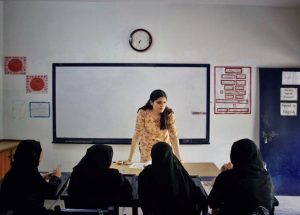Letter 6
Phase 1 and Phase 2 were very effective in my opinion, but as for any intervention, it was necessary to do an analysis of the situation to determine the impact. Going back three weeks after the last workshop was a lovely experience because they ran their hands across my head, which is a way of giving someone prayer and blessing in Pakistan, showing their immense gratitude, while reciting a few prayers for success.

Oral surveys before and after the workshops showed a much better understanding of the symptoms and causes of diabetes and hypertension, although the motivation to change their situations was constant. The measure of the agency to improve their situation, however, did change. These women also reported feeling much better, which can be attributed to both physical and psychological states. The results of this data analysis indicated a tangible impact, thus fulfilling the goal that I set out to achieve.
My overall feelings throughout this project ranged from hopelessness to overwhelming anxiety to happiness and hope. It was definitely a roller coaster ride of emotions, often all of those at the same time, but that’s what showed me that I was truly invested. It’s been truly an honor working with a community that is steadfast and persistent, and despite everything going wrong, keeps a smile on their faces at all times. I hope to return back in December when I get back to Pakistan again, and just speak to them about their lives. I also hope to scale up this project in different slum areas in Pakistan in addition to starting a culture of preventive medicine in schools and hospitals all over. There’s a long way to go, but certainly one that can be covered to reduce health disparity within my city and my country. I am very excited to see what the future holds!
